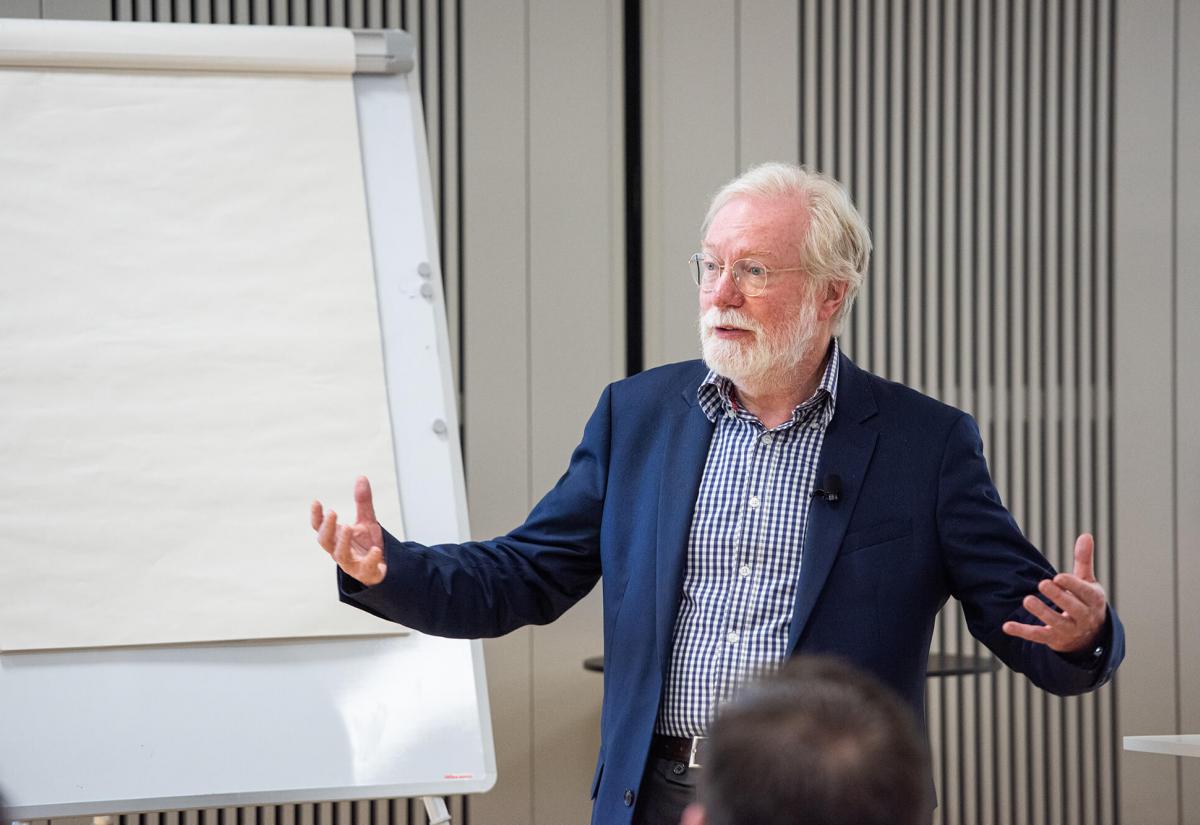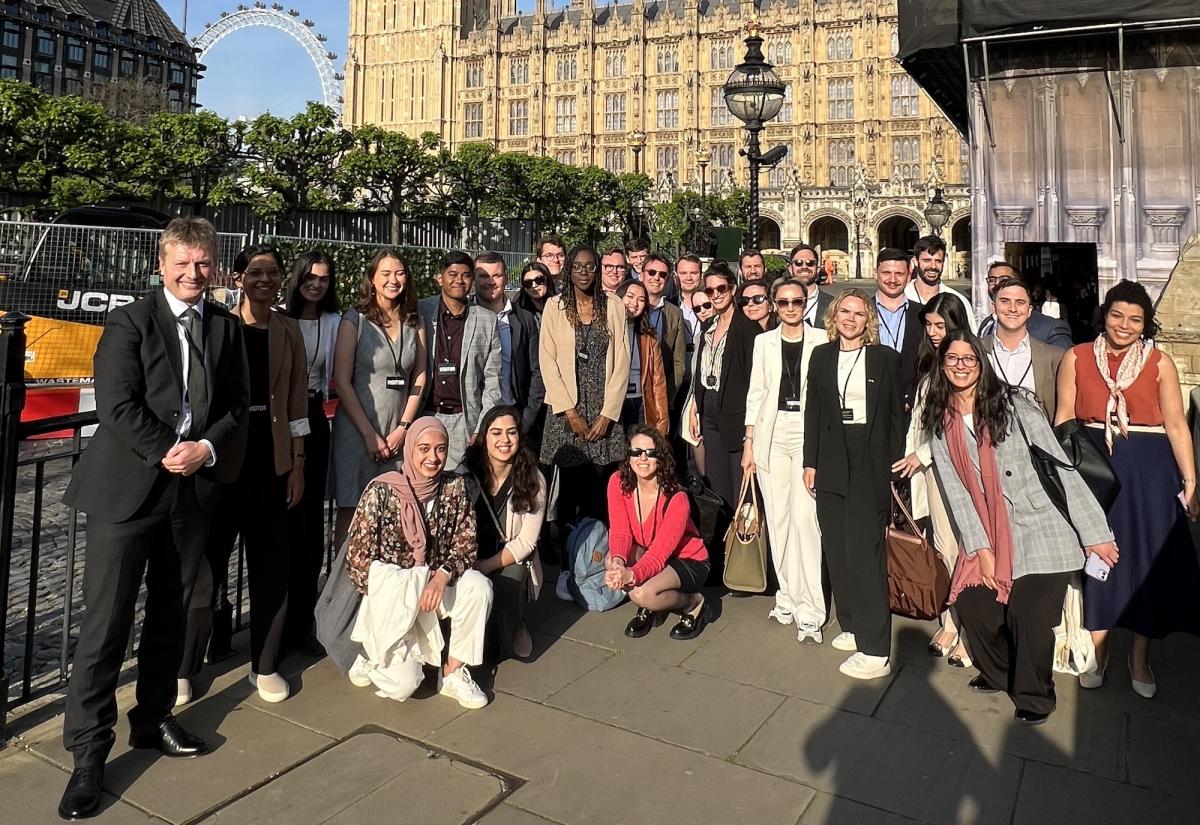
MPP students join lectures in person and remotely as part of the 'hybrid classroom' set-up. Image credit: John Cairns
As the second wave of the coronavirus pandemic hits most countries across Europe, including the UK – with England currently under 'lockdown' restrictions – the Master of Public Policy (MPP) has been unhindered by the changing policy responses aimed at limiting the spread of the virus.
Our students are approaching the end of their first term and thanks to their own dedication, as well as the efforts from staff across the School, the learning and teaching experience has adapted to continue to equip students with the all-important skills to become effective policymakers.
This year’s hybrid teaching system – in which some students join in person and others join online – has enabled us to respond flexibly to changing restrictions, as well as allowing for each student’s personal circumstances. The online aspect of this set-up (developed during Trinity term this year) continues to be refined as the School embraces the opportunity to use new teaching methods. "While teaching this year has provided numerous challenges, it’s also presented opportunities for innovation," says Anandi Mani, Professor of Behavioural Economics and Public Policy.
"Experimenting with a ‘flipped classroom’ style of teaching [whereby students do the reading and watch online videos of key concepts before coming to the lecture] has led to lively and productive discussions during class time, as students come to the lectures having already engaged with the material and are keen to discuss and clarify their ideas."
Transferring the trust-building elements of the MPP to this new way of teaching has been a priority:
“The MPP aspires to leave its graduates with the grace and courage to build unlikely coalitions to solve the world’s thorniest problems in public policy,” says Karthik Ramanna, Director of the MPP. “At the core of making these unlikely coalitions work is trust.”
Key in-person trust-building activities have been reimagined to accommodate the hybrid nature of the classroom – which includes students logging in from different time zones – and to allow for new measures around social distancing and face coverings. “The induction period was jam packed with skill development workshops, case studies and team building activities,” says Naomi Ducat, who joined remotely during the first several weeks of the MPP.
“We can all agree that it’s a challenge to inspire someone to feel genuine excitement about waking up at 3.45am in preparation for a morning workshop, but the School managed to inspire that excitement in me. This alone is a testament to the quality of the programme.”
Student wellbeing has also been a priority, and the School strives to foster a supportive environment and strong community for all of the 145 students who have joined us – whether in person or remotely – from across the world.
“The effort that has gone into making things feel as normal as possible means that, although things may seem unfamiliar outside of the classroom, you’re still benefitting from the personal learning experience and sense of community that make the MPP so rewarding,” says Keir Mather (read more about Keir’s experience of the MPP so far).
“While in quarantine following my arrival at Oxford, I was inspired by the kindness of my peers, who took the initiative to run errands for me, and even delivered coffee and snack supplies to ensure my quarantine period was comfortable,” says Naomi Ducat.
While committing to pursue the MPP at this time meant accepting elements of uncertainty, this did not present a barrier for this year’s students. Naomi says: “While I knew this academic year would not look like anything one could have planned or expected, I couldn’t think of a more meaningful moment – one of collective vulnerability – to join a group of aspiring leaders from around the globe to examine some of our world's greatest policy challenges and dissect the underpinning principles shaping how we deal with the trials of our time.”
"If you want to come to a place that challenges the ordinary and overcomes any given challenge, then come to the Blavatnik School," says Samuel Diaz Pulgar, another student in the class of 2020. "During the past few months, the staff and faculty have gone the extra mile to make sure that our experience at the School is a life-changing one."
Governments, scientists, medical professionals and public health experts are working hard to make progress on treating, containing, and hopefully preventing the spread of the virus – in the meantime, we at the School continue to explore new ways to strengthen our community and embrace novel ways of learning, so that we are ready for whatever challenges 2021 will bring.
Admissions for the MPP and DPhil are open until Friday 8 January 2021. For more information, visit the MPP and DPhil sections of our website, and check the information about funding.



